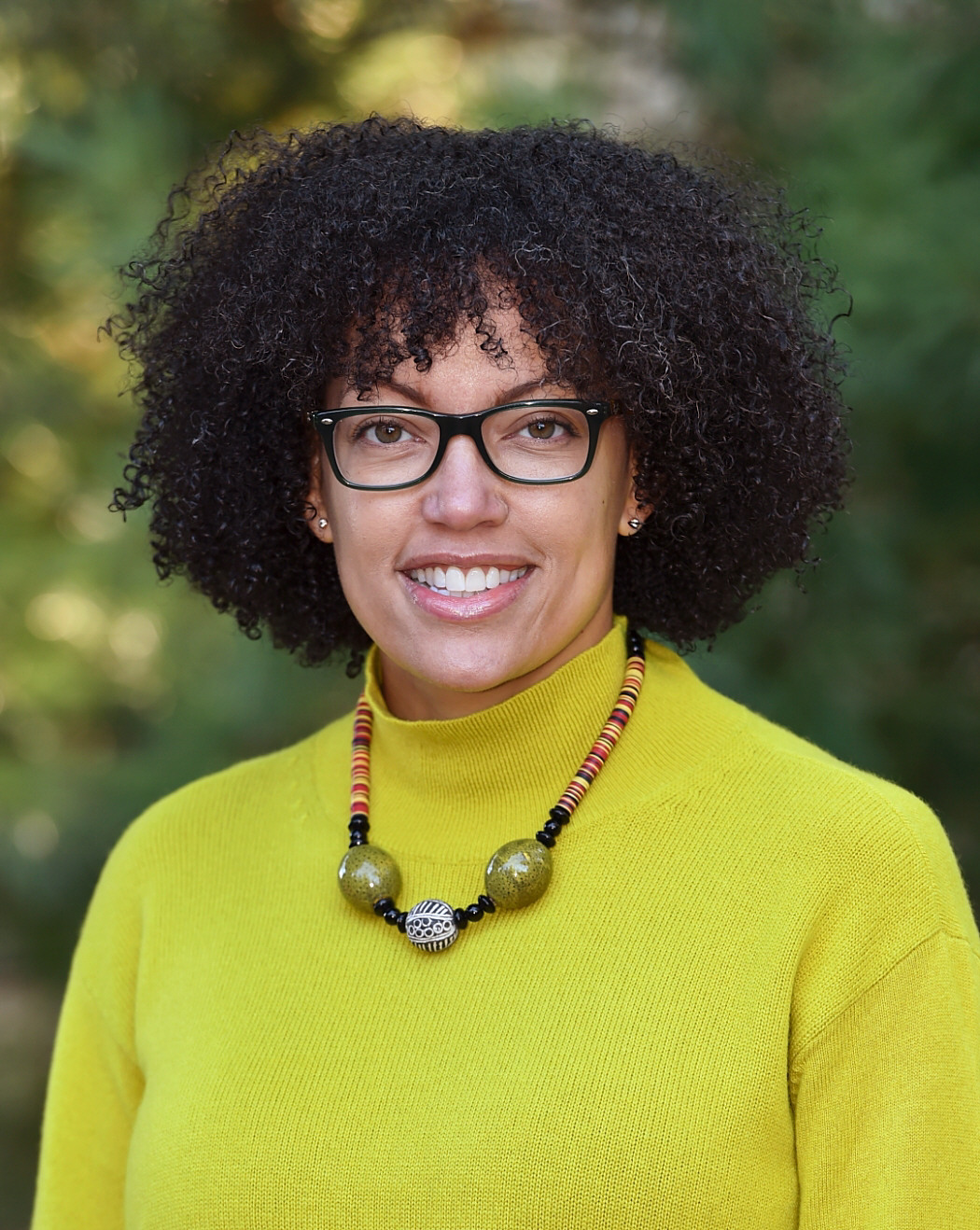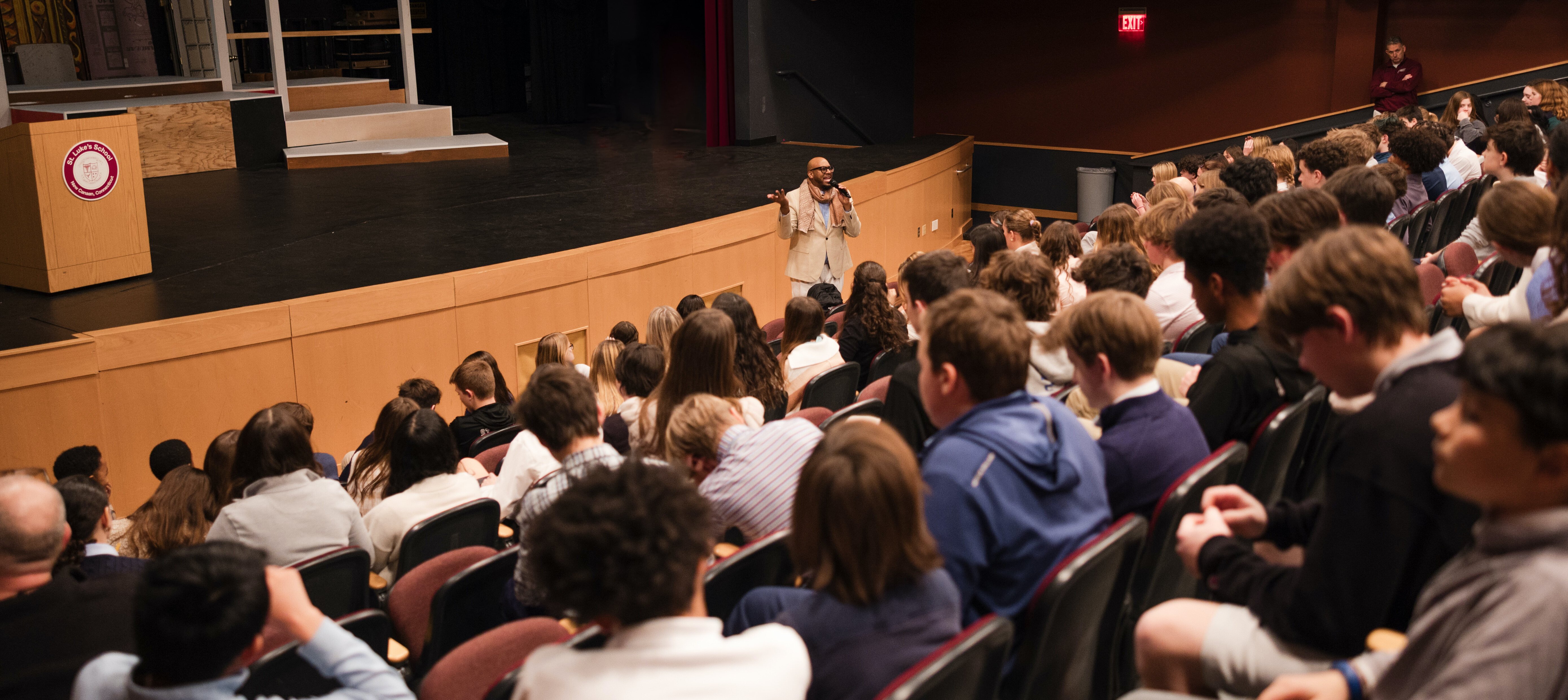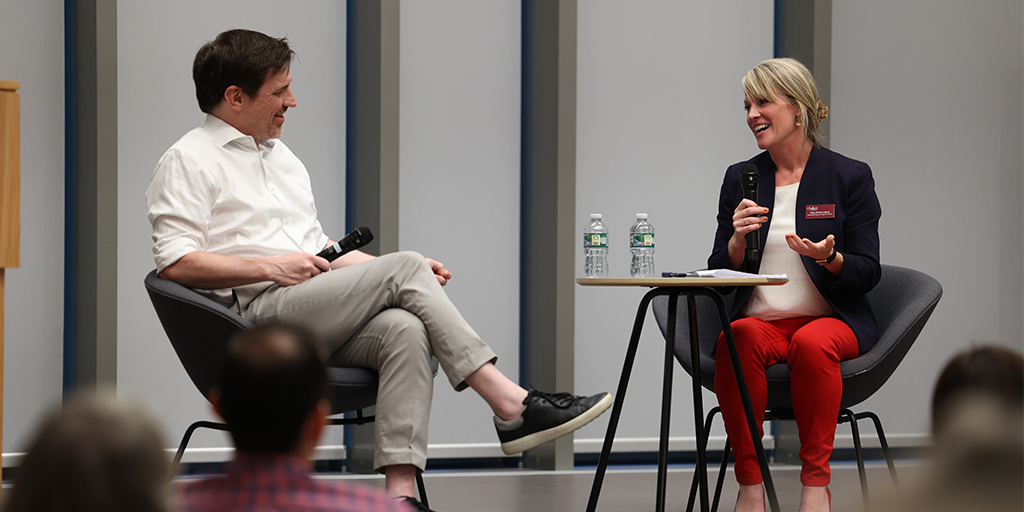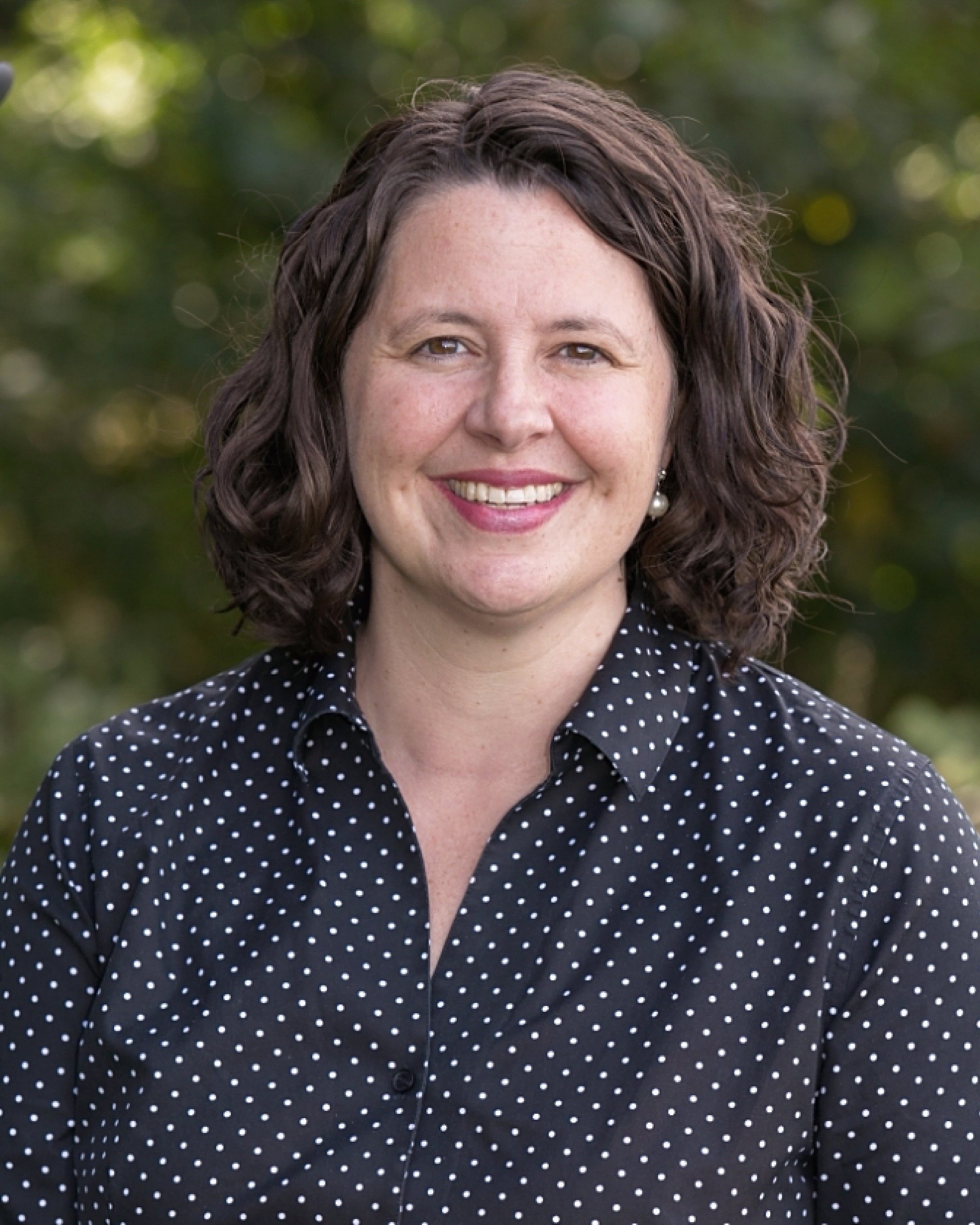“In this moment, it is vital that we reach out to each other. In this moment, we must try our hardest to see each other, to lean in and listen to each other’s story and pain.”
Dr. Carter highlighted the above message in her recent Leading with Humanity address, which reminded me that one of St. Luke’s distinctive features as a school community is the emphasis placed on both civil discourse and an inclusive ethos. To hold these two values together means that we lean into our differences as much as we lean into our similarities, as One St. Luke’s. It also means that we recognize every individual has a unique perspective and varied needs, framed in part by our individual experiences and backgrounds. As a school community with a Vision for Inclusive Excellence, we also recognize a shared responsibility to seek understanding and respect the individual humanity of others.
Coming to St. Luke’s four years ago as the Director of Equity and Inclusion, I was struck by and drawn to the school’s explicit commitment to diversity, equity, and inclusion (of all kinds) and the centering of morality and confident leadership in its mission. As a school leader reflecting on yet another deeply polarizing moment in time in schools, I am reminded, along with my colleagues, of the complexity inherent to cultivating belonging in a truly diverse school community. Leading a team charged with making and holding space for the multitude of voices, perspectives, and backgrounds here on the Hilltop, we are finding it quite difficult to tend to and navigate our beloved community’s wide-ranging emotions, needs, and expectations.
At this moment in history, I can’t seem to look away from my news and social media feeds. Those of us who are plugged into the local and global news are seeing, in my opinion, both the worst and the best of human nature. Violence has begotten violence, and yet cries for unity, humanity, dignity, and peace resound. At this moment, it is our human nature that compels many to vigilantly seek out any expressions that counter our own. And yet, I sense the common ground we all seek is a sense of safety and community care.
In her address, Dr. Carter amplified the importance of our shared humanity and community, particularly when human divisions and geopolitical tensions threaten one’s sense of belonging. As she spoke from the podium on stage in the Seldin Performing Arts Center, I stood close by on the ground, taking in the reactions of both students and colleagues. While I listened and observed, I was fully aware that every single one of us was and is processing our emotions and reactions concerning the humanitarian crisis in Gaza and Israel from very different points of view.
From ongoing conversations with members of the St. Luke’s community, I know that some people are working to get context and understand the historical and geopolitical timeline, while others are having a very frightening personal experience as loved ones are being held captive, displaced or dying, or are being called to defend their country. Some are frustrated or feeling helpless, and still others are unaffected completely or numb due to the inundation of violent images or the pain of indifference. And for some, there is comfort to be found in the familiarity of routine and the simple pleasures of adolescence.
In conversations with colleagues, as we strive to respect and support a diverse community with divergent needs, we benefit from our viewpoint diversity. We collectively agree that anti-Arab and anti-Muslim sentiments, antisemitism, and any form of hate speech will not be tolerated here on the Hilltop. Intolerance of hate does not mean intolerance of differing opinions. Dr. Carter reminded us during her address, “We should civilly disagree and assert our own point of view on any issue…we are not supposed to always agree, but we must regard every person we speak with and about as equally valuable.”
With the many unknowns at present, one thing we do know is that the St. Luke’s community has repeatedly proven that the best of our human instincts are on display when we can see past the “us versus them” defense and lean into our human capacity for resilience.
When we actively seek truth and understanding to expand our circles of concern and make more informed choices, we can more effectively lead with humanity, integrity, respect, kindness, and responsibility, as articulated in the Honor Code. Human nature may compel us towards “fight or flight” instincts; however, our commitment to St. Luke’s mission can help ground us. If we are to embody our mission and vision fully, we must be willing to use our moral compass to navigate complexity and polarization without losing sight of our interconnectedness. We must know all human beings deserve to have their dignity preserved and humanity recognized.
Get our latest blog posts!

By Author
- Amber Berry: Former Head of Middle School ( 2 )
- Beth Yavenditti: Director of Global Education ( 3 )
- Carrie Meatto: Spanish Teacher ( 1 )
- Daphne Teittinen-Schreck: ESS Director ( 1 )
- Dr. Jason Haynes: History Chair ( 2 )
- Dr. Stephanie Bramlett: Former Director of Inclusive Excellence ( 2 )
- Gareth Fancher: Director of Emotional Intelligence ( 1 )
- Georgia Rosenberg '19: Student ( 1 )
- Hunter Martin: Summer Program Director ( 1 )
- Jacqueline Nelson: Director of Equity and Inclusion ( 4 )
- Jane Olsen: Fifth Grade Teacher (retired) ( 1 )
- Jason Giffen: Director of Enrollment Management ( 4 )
- Jessie Samuel, Fifth Grade Science Teacher ( 1 )
- Jim Foley: Asst. Head of School for Leadership & Innovation ( 2 )
- Jim Yavenditti: Director of Studies ( 1 )
- Joshua Schneider, Upper School Science Teacher ( 1 )
- Julia Gabriele: Associate Head of School & Chief Financial Officer ( 5 )
- Kate Parker-Burgard: Director of Community Connections ( 22 )
- Liz Perry: Assistant Head of School for Academics ( 11 )
- Mark Chuhta: Asst. Head of Middle School ( 1 )
- Mary Halpin Carter: Head of School ( 3 )
- Nancy Troeger: Director of Marketing and Communications ( 3 )
- Sonia Bell: Director of College Counseling ( 2 )
- Stephen Vehslage: Associate Director of College Counseling ( 1 )
- Students: Jack Briggs '21 and Liam Patty '21 ( 1 )
- Tom Owen: English Teaching Fellow ( 1 )
- Gareth Fancher ( 1 ) [Show All]
Recent Articles
Posts by Topic
- Leadership (44)
- Character (33)
- Mission (32)
- Community (28)
- School (25)
- Innovation in Education (18)
- Lifelong Learning (18)
- Service (18)
- teens (18)
- private school (14)
- Inspiration (13)
- Values (13)
- Moral Compass (11)
- Parenting (10)
- Diversity & Inclusion (9)
- Global Perspective (9)
- Above and Beyond (7)
- Gratitude (7)
- Moral Courage (7)
- Well-Being (7)
- Freedom (4)
- Mindfulness (4)
- SLSHeroes (4)
- college (4)
- Civil Discourse (3)
- College Admissions (3)
- Resilience (3)
- Student Voices (3)
- Technology (3)
- humanity (3)
- Meditation (2)
- Parents as Partners (2)
- Postive (Alumni) Outcomes (2)
- Private School Admissions (2)
- student-led learning (2)
- Athletics (1)
- Family (1)
- Patriotism (1)
- middle school (1)















Leave a comment